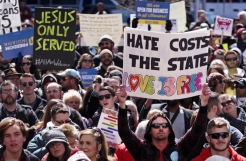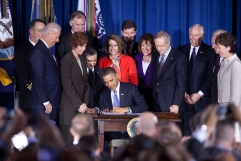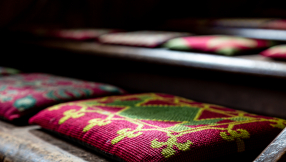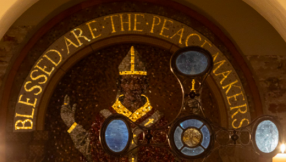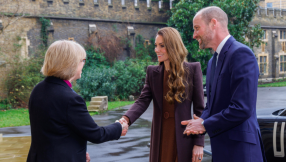U Defence Secretary Ash Carter announced on Tuesday that the Pentagon has updated its Military Equal Opportunity policy to ban discrimination against gays and lesbians.
"And that's why, today, I'm proud to announce that the Department of Defence has completed the process for updating its Military Equal Opportunity policy to include sexual orientation – ensuring that the department, like the rest of the federal government, treats sexual-orientation-based discrimination the same way it treats discrimination based on race, religion, colour, sex, age, and national origin," said Carter in his keynote address at the Defence Department's Lesbian, Gay, Bisexual and Transgender Pride Month ceremony at the Pentagon.
He said this is in line with the Pentagon's "lasting commitment to living the values we defend – to treating everyone equally – because we need to be a meritocracy."
"We have to focus relentlessly on our mission, which means the thing that matters most about a person is what they can contribute to national defence," Carter said.
He said four years after the repeal of the "Don't Ask, Don't Tell" policy, which allowed gays to serve in the military only if they hid their sexual orientation, "today we take pride in how they're free to serve their country openly."
Carter cited several gay and lesbian military personnel who have defended the US including 20-year-old Army Corporal Lloyd Darling, who was killed in Vietnam in 1968, and Marine Corps veteran Staff Sergeant Eric Alva, the first American wounded in the Iraq War.
"And I'm very proud of the work that the military services have put into this over the last several months. Because discrimination of any kind has no place in America's armed forces," Carter said.
He said openness to diversity is a key that allowed the US military to be the best in the world and everyone who's able and willing to serve should have the equal opportunity to do so.
"And we must start from a position of inclusivity, not exclusivity. Anything less is not just plain wrong; it's bad defence policy, and puts our future strength at risk," he said.
Carter added that embracing diversity and inclusion is critical in recruiting personnel in the future. Young Americans today are more diverse, open, and tolerant than past generations, and if we're going to attract the best and brightest among them to contribute to our mission of national defence, we have to ourselves be more open, diverse, and tolerant, too. It's the only way to compete in the 21st century," he said.










